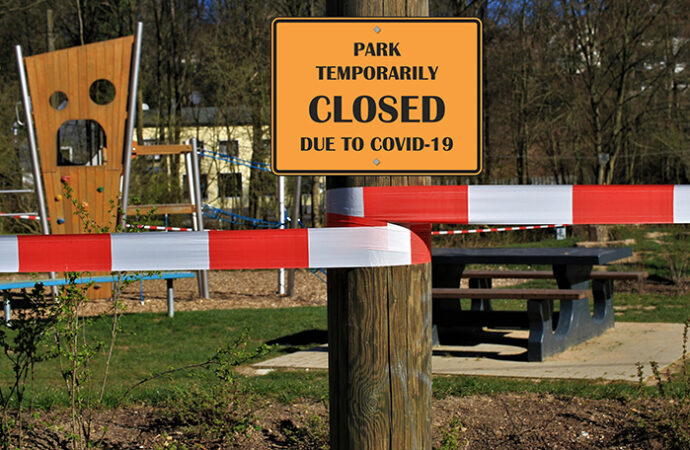What happens when trees are planted in a “perfect” growing environment? Give the trees rich soil, just the right amount of water and no wind, and they grow rapidly, but topple over before they reach maturation. Wind stimulates the tree to grow stress wood, which “helps a tree position itself for optimal sun absorption, and it also helps trees grow more solidly.”
In a recent interview, two immunology doctors, former emergency-room physician Dr. Daniel W. Erickson and his partner at a California Urgent Care, Dr. Artin Massih, challenged us to consider the possibility that draconian lockdowns are counterproductive. Without exposure to pathogens, we cannot build a healthy immune system:
“The immune system is built by exposure to antigens: viruses, bacteria. When you’re a little child crawling on the ground, putting stuff in your mouth, viruses and bacteria come in. You form an antigen antibody complex. You form IgG IgM. This is how your immune system is built. You don’t take a small child put them in bubble wrap in a room and say, ‘go have a healthy immune system.’
“This is immunology, microbiology 101. This is the basis of what we’ve known for years. When you take human beings and you say, ‘go into your house, clean all your counters—Lysol them down you’re gonna kill 99% of viruses and bacteria; wear a mask; don’t go outside,’ what does it do to our immune system? Our immune system is used to touching. We share bacteria. Staphylococcus, streptococcal, bacteria, viruses.”
Erickson and Massih are alarmed at the unintended consequences of a prolonged lockdown:
“Sheltering in place decreases your immune system. And then as we all come out of shelter in place with a lower immune system and start trading viruses, bacteria—what do you think is going to happen? Disease is going to spike. And then you’ve got diseases spike—amongst a hospital system with furloughed doctors and nurses. This is not the combination we want to set up for a healthy society. It doesn’t make any sense.”
When the lockdown ends, will we face a similar danger as a sheltered tree? Will we have the necessary stress wood to withstand the wind?
On a spiritual level, Rabbi Dr. Abraham Twerski, a graduate of Marquette University’s medical school, asks us to consider how lobsters grow. Lobsters are soft-bodied animals encased in an exoskeleton. As the lobster grows, the older, now too-small shell must be discarded so a new shell can grow. Twerski points out, “The stimulus for the lobster to be able to grow is that it feels uncomfortable.”
Twerski also hypothesizes that if lobsters had doctors, they would seek painkillers when they got uncomfortable. Relieved from discomfort, they would not shed their old shells and grow. Twerski challenges us to use adversity properly and recognize that times of stress are also times for growth.
Human beings are not trees or lobsters, yet the warnings from Dr. Erickson and Dr. Massih echo lessons from the natural world.
Faced with a virulent virus, reasonable precautions, especially for the most vulnerable members of society, are wise. But, have we gone overboard?
This past weekend, my wife and I hiked trails in the White Mountains of New Hampshire on a lovely spring day. These trails are not always wide, and sometimes you closely pass other people on the path.
Only one man stepped off the trail when we were passing by. No one else seemed concerned that a brief outdoor encounter with another person’s airspace was putting them at a risk.
The next day we learned that the Forest Service felt otherwise and closed many trails in the White Mountains, citing an “unseasonably high” number of visitors. A Forest Service spokesperson said, “We can only imagine what was going on up the trails as far as people crossing lanes with each other as they’re going in opposite directions.”
If Forest Service personnel hiked, they would not have to imagine trail conditions. They would find solo hikers or pairs of people widely interspersed. Hikers are behaving like they always have. They politely greet other hikers and sometimes pause briefly to share news of trail conditions or provide directions.
In “protecting” people from enjoying the outdoors during social distancing, is our fear simply creating a dangerously unhealthy society? Perhaps it is time to head the warnings of Erickson and Massih – too much protection might later turn out to be as harmful as refusing to take reasonable coronavirus precautions.
—
[Image Credit: Pixabay]
Image Credit: [Image Credit: Pixabay]
















Leave a Comment
Your email address will not be published. Required fields are marked with *